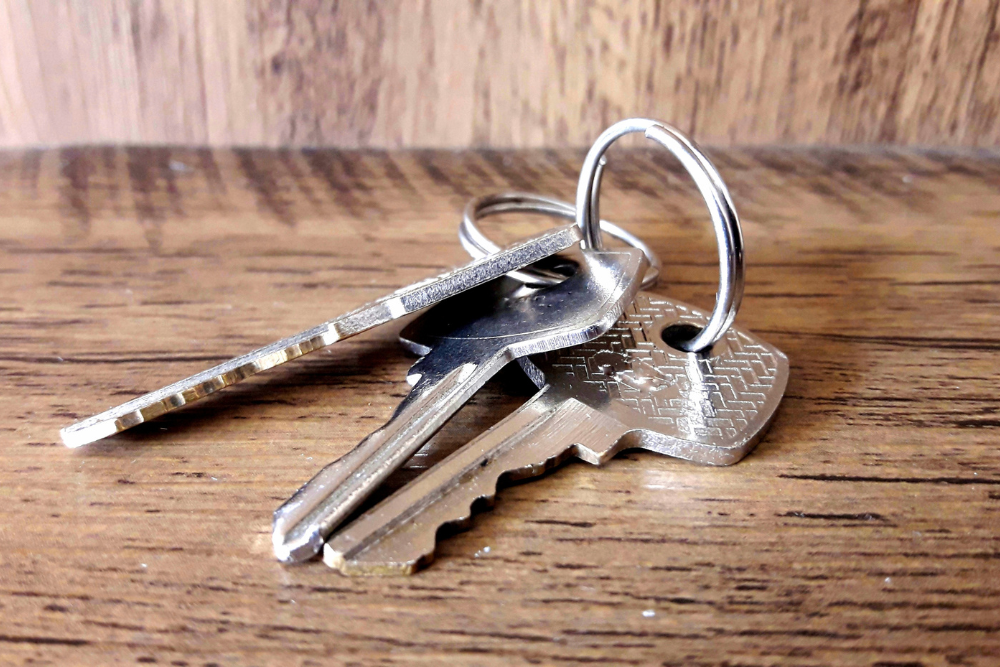Key Duplication: Understanding the Process, Risks, and Security Measures

In today's world, the use of physical keys remains widespread despite the rise of digital access systems. Whether for homes, offices, vehicles, or lockers, keys play a crucial role in securing property and maintaining privacy. One often-overlooked aspect of key security is key duplication the process of making an exact copy of an existing key. While convenient, key duplication can also pose serious security risks if not properly managed. This article explores key duplication in detail, examining the process, common use cases, associated risks, legal considerations, and best practices for preventing unauthorized duplication.
1. What is Key Duplication?
Key duplication is the process of creating a new key that is an exact replica of an existing one. This is typically done using a key-cutting machine, which traces the grooves of the original key onto a blank key.
1.1 Methods of Key Duplication
-
Manual Key Cutting: Traditional method using a mechanical duplicator.
-
Automated Key Cutting Machines: Computerized machines that ensure precision and can duplicate a wide variety of key types.
-
3D Printing: An emerging method where keys are printed based on a digital scan or photo.
-
Digital Code Cutting: Uses a key code (often found on locks or key tags) rather than a physical key.
1.2 Common Scenarios for Duplication
-
Giving family members or roommates a copy of a home key.
-
Providing access to employees in a business setting.
-
Having a spare car or locker key.
-
Replacing a damaged or worn key.
2. Types of Keys and Duplication Restrictions
2.1 Standard Keys
Standard house or office keys can usually be duplicated easily at hardware stores or locksmiths. There are few restrictions, making them vulnerable to unauthorized copying.
2.2 Restricted Keys
These keys are designed to prevent unauthorized duplication. They typically require:
-
Proof of ownership
-
Manufacturer's permission
-
A registered locksmith to duplicate
2.3 High-Security Keys
High-security keys are patented and come with key control systems. Duplication requires:
-
Manufacturer-issued authorization cards
-
Verification of identity
-
Approved locksmith or vendor
3. Legal and Ethical Considerations
3.1 Legal Aspects
In many jurisdictions, duplicating a key without the owner's consent is illegal. For restricted keys, the act can be considered a breach of intellectual property rights or a violation of contract terms.
3.2 Ethical Concerns
Even if not illegal, duplicating a key without informing the owner breaches trust. In workplace or landlord-tenant relationships, this can lead to serious consequences.
4. Risks Associated with Key Duplication
4.1 Unauthorized Access
The primary risk of key duplication is unauthorized access to secure areas. If someone obtains and duplicates a key without permission, they could:
-
Break into homes or offices
-
Steal property or sensitive information
-
Violate privacy
4.2 Security Breaches in Business
Employees with unauthorized copies may:
-
Enter restricted zones
-
Bypass security protocols
-
Leak confidential data
4.3 Personal Safety Risks
For individuals, unauthorized duplication can lead to:
-
Stalking
-
Theft
-
Home invasions
5. Preventing Unauthorized Key Duplication
5.1 Use High-Security or Restricted Keys
Choose locks that require keys which cannot be duplicated easily. These keys often require:
-
Special blanks only available to authorized dealers
-
Duplication cards
-
Licensing or registration
5.2 Implement Key Control Policies
For businesses and property managers:
-
Keep detailed records of who has which keys
-
Require keys to be signed in and out
-
Regularly audit keys and locks
5.3 Educate Users
Make sure key holders understand:
-
The importance of not sharing or copying keys
-
The security implications of key loss or theft
-
Proper key return protocols
5.4 Use Digital or Smart Locks
Modern smart locks can:
-
Eliminate physical keys entirely
-
Track and control access remotely
-
Grant or revoke access in real-time
6. When to Replace Locks
If you suspect a key has been duplicated:
-
Immediately rekey or replace the lock
-
Notify relevant authorities if a crime is suspected
-
Review and strengthen key control policies
Conclusion
Key duplication is a double-edged sword. While it provides convenience and ensures access during emergencies, it also opens the door to potential misuse and security threats if not carefully managed. Understanding the types of keys, how duplication works, and the risks involved is essential for both individuals and organizations. By using high-security key systems, implementing strict control measures, and embracing new technologies like smart locks, you can significantly reduce the risk of unauthorized duplication and enhance the overall security of your premises.
- Art
- Causes
- Crafts
- Dance
- Drinks
- Film
- Fitness
- Food
- Games
- Gardening
- Health
- Home
- Literature
- Music
- Networking
- Other
- Party
- Religion
- Shopping
- Sports
- Theater
- Wellness



